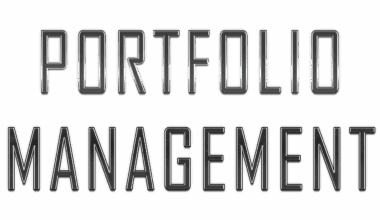Protecting Yourself From Scams in Short Sales and Foreclosure Purchases
The real estate market can sometimes feel like a minefield, especially when dealing with short sales and foreclosures. Unfortunately, such financial environments can also lead to an increase in scams. Homebuyers must be vigilant and well-informed about potential risks. Understanding what a short sale or foreclosure means is crucial. A short sale occurs when a homeowner sells their property for less than the amount owed on their mortgage. It’s essential to work with trustworthy professionals such as real estate agents and attorneys to navigate this process. Moreover, foreclosures represent properties taken back by lenders due to unpaid mortgage payments. Be informed about the rules and rights involved in both scenarios. Familiarize yourself with how genuine transactions work, which can help you avoid falling prey to illicit activities. Furthermore, never rush into transactions. Take your time to evaluate offers and conduct due diligence. Scammers often create a sense of urgency that can pressure buyers into making uninformed decisions, leading to losses. Stay informed and cautious.
Recognizing Common Scams
Identifying the hallmarks of scams can be your best defense when purchasing short sales or foreclosures. Scammers often employ deception tactics to catch prospective buyers off-guard. One common scam involves unrealistically low prices that seem too good to be true, luring unsuspecting individuals. Always verify prices through reliable listings and certified agents. Another common tactic is the so-called “phantom listings,” where scammers advertise properties that aren’t actually for sale. Be sure to conduct thorough research on the property before making any commitments. Request official documentation and inspect the property to confirm its availability. Additionally, fraudsters may offer to negotiate with lenders on your behalf, usually for a fee. Avoid such arrangements unless you have confirmed their legitimacy. Also, be wary of sellers asking for hefty upfront fees or payments, as this is often a telling sign of a scam. Remember, legitimate transactions will give you ample time for consideration and consultation, ensuring you are informed at all stages. Protect your investments by remaining aware.
It’s also important to recognize the role of technology and how it can be used against you. Scammers increasingly employ online platforms to reach potential victims. They may use social media, email, or even deceptive websites to lure victims. Always scrutinize online posts or emails, particularly if they seem unsolicited. Verify any correspondence you receive by contacting the seller or agent directly. Moreover, never click on suspicious links or provide personal information without thorough verification. A professional real estate agent should provide documents and communication in a clear, secure manner. Be cautious about any financial information shared online during the transaction process. Scammers might impersonate legitimate entities to gain your trust. Conduct your due diligence by checking reviews and references before proceeding with any agreements. Trust is hard to rebuild, so it’s crucial to work with known professionals and validated companies. Consider using a reputable escrow service when handling payments to add extra protection against fraud. This can help ensure funds are secure during the transaction and only released when necessary conditions are satisfied.
Utilizing Legal Support
Consulting with a qualified real estate attorney can significantly reduce your risk of falling victim to scams. Attorneys can offer valuable insights into the legal aspects of short sales and foreclosures. They will help you understand the terms and conditions of any deal before signing documents. Engaging a legal professional can also ensure that all disclosures are appropriately made and adhered to, providing you with peace of mind in your transactions. Additionally, if something seems off about a deal, your attorney can help investigate and clarify complex matters. Look for a real estate attorney who specializes in short sales and foreclosures, ensuring they are familiar with this niche market’s nuances. Furthermore, they can assist in reviewing contracts, preventing misunderstandings before they escalate into more serious issues. A legal expert will also be aware of local regulations that may protect you as a buyer. Understanding your rights will empower you during the purchasing process, potentially saving you from costly pitfalls. Remember, knowledge is the first line of defense when it comes to preventing fraud.
Education is another crucial factor in protecting yourself against scams. Being knowledgeable about the housing market can significantly improve your chances of a successful transaction. Research essential terms regarding short sales and foreclosures so that you can speak with authority when negotiating deals. This will also help you recognize patterns of behavior indicative of scams. Attend seminars or webinars focused on real estate transactions, and consider reading related books to deepen your understanding. Stay updated on recent developments in property laws and legal obligations pertaining to short sales and foreclosures. Join online forums or groups that discuss real estate investment to gain insights and share experiences. Engaging with a community can offer support and additional resources for education. There are many free and low-cost resources available for buyers who want to navigate the real estate market safely. Learning from others’ experiences can prepare you to encounter potential red flags when exploring properties. Always evaluate any information you receive and take time to ask questions before committing any financial resources.
Building Trust with Real Estate Agents
Building a trustworthy relationship with your real estate agent can make all the difference in avoiding scams. A good agent should provide transparency regarding the properties you are interested in and their history. Ask your agent plenty of questions about their experience, especially regarding short sales and foreclosures. Request references from previous clients, as this can help substantiate their credibility. Additionally, ensure that your agent is licensed and accredited, as legitimate professionals work within established guidelines. It’s also important to communicate openly with your agent about your financial capabilities and expectations, allowing them to guide you effectively. Regular check-ins with your agent will keep both parties informed of any changes or new listings. Trustworthy agents will prioritize your needs and provide relevant information regardless of whether it’s favorable. Furthermore, pay attention to how your agent handles challenges or delays throughout the process. Genuine agents will remain proactive and navigate obstacles with professionalism. Trust your instincts; if something feels off about your agent or their actions, don’t hesitate to consult additional professionals or look for alternative representation.
Lastly, cultivating a mindset of vigilance throughout your purchasing process is vital in navigating potential scams. Stay alert to and aware of your surroundings. Engage in proactive research and question anything that seems unclear. Know your finances and review all contracts before signing. If an offer sounds too good to be true, take a step back. Consult other buyers or professionals before committing to major decisions. Document every communication and transaction for your records, as this can act as evidence if issues arise later. Establish a checklist that ensures you fulfill all necessary steps before closing any deal. Utilize resources like the Better Business Bureau or local consumer protection agencies to report suspicious activities. Constantly look for signs of fraudulent activities or unexpected changes in your buying experience. Open discussions about experiences can foster a culture of awareness, wherein potential victims can communicate and share warnings. By implementing these layers of protection, purchasing property can transform into an enriching experience rather than a regrettable error. Staying informed is crucial, empowering you to make educated choices.
In conclusion, protecting yourself from scams during short sales and foreclosure purchases is a proactive endeavor requiring attention to detail. By recognizing the signs of potential scams, utilizing legal support, and building relationships based on trust, you can significantly mitigate risks. Empower yourself through education, arming yourself with knowledge about the real estate market. Engage qualified professionals to assist in ensuring that your transactions are legitimate and secure. Effective communication with your agents and legal representatives fosters a sense of transparency and confidence in your decisions. Maintain a vigilant mindset and approach the market cautiously, treating every transaction with the seriousness it deserves. The real estate realm is ever-evolving, and staying informed is vital for success. Remember, you are not alone in your journey; leverage the resources available to you, including expert insights and community support. Adopting a comprehensive strategy to protect yourself will prepare you for the challenges ahead. Your financial future is worth the effort required to safeguard against potential scams. Take action, educate yourself, and strive for success in your real estate endeavors.


